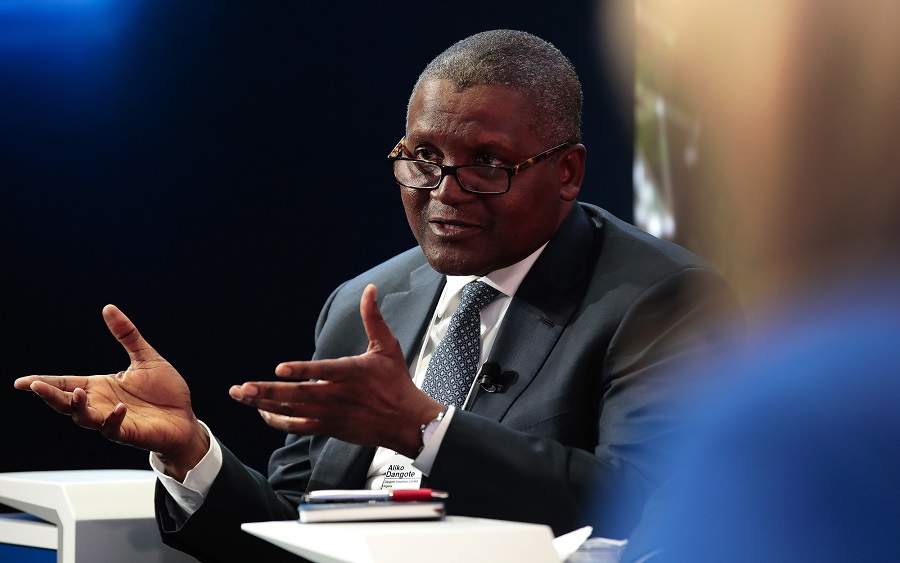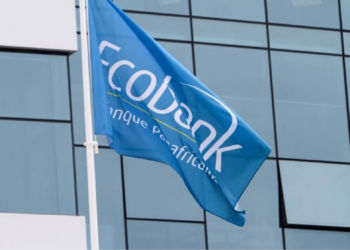Investors use the terms growth stock and income stock; they buy growth stocks because of the capital gains and they are interested in the future growth of earnings. On the other hand, they buy income stock primarily for cash dividends.
In the context of listed companies, there is that tradeoff of being an income stock or a growth stock but in the case of Dangote Cement, it appears a win-win either way. The company rewards its shareholders in an unusual yet simple way.
Dangote Cement is Sub-Saharan Africa’s largest cement producer with an installed capacity of 51.6Mta capacity across 10 African countries. It boasts of about 64% market share in Nigeria
The company has been listed on the NGX since October 26, 2010, and is currently the third most valuable stock on the NGX with a market capitalization of N4.91 trillion behind Airtel Africa (N5.82 trillion) and MTN Nigeria (N5.05 trillion).
Since its listing, the company has continued to create value for its shareholders through a combination of capital gains and dividends. According to its recently published FY 2022 report, the company’s dividends have grown by a compound annual growth rate of 33%, impressive for a listed company in Nigeria.
In the past 10 years, Dangote Cement’s dividend payment has been stable and increased too. The company in a corporate action notification proposed a final dividend of N20 for the 2022 FY payable on April 14, 2023, and March 30 2023 as the qualification date. With this, the company’s share price offers a dividend yield of 6.94%.
In similitude, the company’s share price has not done badly either. In 2022, it increased by 3.85%, and this year already up 7.91% YtD; above its 5-year moving average price. Since Covid-19 in 2020 when it fell to a multiyear low of N126 the share price has more than doubled to N288 per share gaining 128%.
Over the last 5 years, its share price is up. In the last 6 months (between October and March) share price is also up 77% Thus, in terms of returns the dividend growth is supported by earnings and the share price performance reflects its fundamentals.
Speaking of fundamentals, over the past 12 years, the company’s revenue and EBITDA have grown by a compound annual growth rate of 18% and 15% respectively implying a fivefold increase and revealing a true growth story. Earnings per share over this period also recorded a double-digit compound annual growth rate and with the share buyback program, we expect EPS and share price to pop up further.
Dangote Cement has also undertaken several buyback programs aimed at reducing its shares outstanding a move that typically boosts earnings per share. Share buybacks is essentially reducing the number of shares available to receive future dividends. The smaller the shares are outstanding the higher the dividend per share.
According to the company, the share buyback program reflects its commitment to finding opportunities beyond dividends to return cash to shareholders. This is good, however, how reflective this would be, depends on how the company undertakes the buyback; open market or self-tender.
- In December 2022, the shareholders authorized the company to undertake a fresh buyback of up to 10% of its issued shares. Prior, between December 30th, 2020, and January 20, 2022, it had bought back 0.98% of its issued and fully-paid ordinary shares.
- On December 31, 2020, the Company bought back 40,200,000 units of its shares at a total cost of ₦9.8 billion which included the par value of the shares and additional premium paid on it.
- Again in January 2022, the Company executed tranche II of its Share Buy-Back Programme, buying back 126,748,153 units of its shares at a total of ₦35.3 billion. As of 31 December 2022, the Company held 166,948,153 amounting to ₦45.2 billion.
- Share buyback often delivers a double win; share price appreciation and dividend payment.
A combination of share buybacks, constant dividend payments, and capital appreciation may appear simple and expected for listed companies but it is uncommon in Nigeria’s beleaguered stock market. In Nigeria, most companies don’t pay dividends let alone conduct share buybacks.
Despite this strategy, Dangote Cement is not immune to negative headwinds. In recent years, Dangote Cement, just like other companies operating in a harsh economic environment and the remnants of the macroeconomic headwinds are still available. These are likely to impinge growth more.
In 2022, Dangote Cement’s group revenue was up 17.0% at N1,618.3 billion, thanks to better price realization to offset the rising cost. Sales volumes were down in all the market segments and cumulatively dropped by 5.1%.
The company generated an EBITDA of N708.238 billion compared to N684.595 billion in 2021, but the EBITDA margin dropped to 43.8% compared to 49.5% in 2021 due to cost pressure. The company experienced a surge in the price of input costs; significant foreign exchange fluctuation and a drop in gas availability in Nigeria.
Consequently, profit before tax dropped to N524.002 billion in 2022 compared to N538.366 billion in 2021, representing a 2.61% decline. Overall, the company’s full-year 2022 earnings per share growth of 4.8% was in line with analyst expectations, tracked ahead of the share price, and higher than Nigeria’s GDP growth of 3.1%.
It is soothing that the company has undertaken measures to diversify some of the cost pressures. The commissioning of alternative fuel feed systems at Obajana and Ibese to reduce their energy cost is surely the right path.























Well written and very informative.